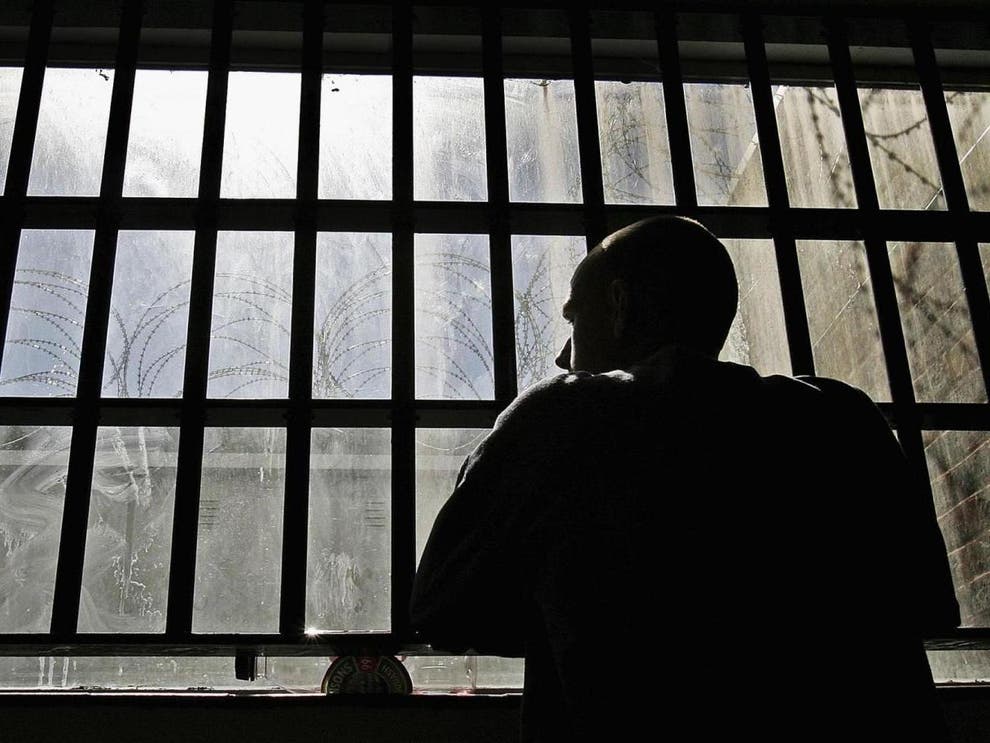Outrage as Home Office moves suspected modern slavery victims from removal centres to prisons
‘Being in jail makes people hurt themselves. I can’t go through that again,’ says potential trafficking survivor

Your support helps us to tell the story
From reproductive rights to climate change to Big Tech, The Independent is on the ground when the story is developing. Whether it's investigating the financials of Elon Musk's pro-Trump PAC or producing our latest documentary, 'The A Word', which shines a light on the American women fighting for reproductive rights, we know how important it is to parse out the facts from the messaging.
At such a critical moment in US history, we need reporters on the ground. Your donation allows us to keep sending journalists to speak to both sides of the story.
The Independent is trusted by Americans across the entire political spectrum. And unlike many other quality news outlets, we choose not to lock Americans out of our reporting and analysis with paywalls. We believe quality journalism should be available to everyone, paid for by those who can afford it.
Your support makes all the difference.The Home Office has prompted outrage after it emerged that potential modern slavery victims are being transferred from immigration detention centres to prisons.
Lawyers and charities have warned that vulnerable people will be left without access to vital support due to the decision to place them in a jail setting.
Since the start of the pandemic, the Home Office has sought to hold fewer people in removal centres for Covid-19 safety reasons, placing many in prisons instead.
Conditions in jails have meanwhile become significantly more restrictive, with most adult inmates now locked in their cells for 23 hours a day – in some cases, 24 hours a day.
The Independent is aware of at least two cases where detainees who have trafficking indicators have been informed that they will be transferred from a removal centre – where conditions are less restrictive and they have better access to legal advice – to a prison.
One man, who cannot be named to protect his identity, had been due to be deported to Jamaica this week but had his ticket cancelled after he was referred to the National Referral Mechanism (NRM) and the Home Office identified him as a potential trafficking victim.
The 23-year-old, who in June completed a two and a half year sentence for possession with intent to supply Class A drugs – which his lawyers say involved him being groomed over a number of years – told The Independent: “I’ve completed my sentence. I’ve done nothing wrong since I’ve been here, now they’re telling me I’m going back to prison.
“Being there makes people hurt themselves. I can’t go through that again. They’re messing with my mental health. I wouldn’t cope back in jail. I wouldn’t be able to speak to my son. I’d be going back to suffer.”
Karen Doyle, of campaign group Movement for Justice, said: “Deciding to move vulnerable detainees, potential victims of trafficking who have finished their sentence, back to prison is torture. It prevents them from accessing vital outside support.
“To do it when Covid is spreading through the centre, putting the prison population further at risk, is unconscionable.”
Last December, a letter signed by 40 organisations and lawyers called on the government to “immediately” release people held in jail under immigration powers, warning that immigration detainees had been “left to navigate the complex process of challenging their detention and deportation without any form of assistance whatsoever”.
Annie Viswanathan, director of Bail for Immigration Detainees, which coordinated the letter, said: “Since the start of the pandemic, extremely severe lockdown conditions have become commonplace, with most of our clients held in prisons locked in their cells for 23 hours per day.
“These conditions amount to prolonged solitary confinement which is banned under international law due to the incredibly harmful mental and physical health consequences. It is particularly dangerous for people who are already vulnerable including survivors of human trafficking.”
A lawyer who represents the man quoted above, who did not want to be named due to death threats they have received for representing detainees, said that moving potential trafficking victims back to prison once they’d completed their sentence was a “terrifying practice”.
“The idea that once you’ve been recognised as a possible victim of exploitation you are supposed to begin your recovery period from prison is nonsensical,” they added.
“Many of these cases are criminal exploitation cases where the reason for exploitation is county lines related activities. Often there’s a risk of coming into contact with other individuals affiliated with the traffickers in prison, so it can be potentially very dangerous for some of these young men, and increases the risk of re-trafficking.
“If you have someone really scared and traumatised who has finally started to open up about past experiences of criminal exploitation, it just makes no sense to shove them back in prison.”
A Home Office spokesperson said: “Those held in prison are typically individuals who present a threat to themselves or others and will only be move from an immigration removal centre after a dedicated Home Office team conducts a thorough risk assessment on their suitability to remain.
“Foreign national offenders who abuse our values and laws by committing crimes should be in no doubt of our determination to deport them.”
Join our commenting forum
Join thought-provoking conversations, follow other Independent readers and see their replies
Comments